Joachim Radkau | |
|---|---|
 Joachim Radkau, Frankfurt Book Fair 2013 | |
| Born | October 4, 1943 |
Joachim Radkau (born October 4, 1943) is a German historian.
Joachim Radkau | |
|---|---|
 Joachim Radkau, Frankfurt Book Fair 2013 | |
| Born | October 4, 1943 |
Joachim Radkau (born October 4, 1943) is a German historian.
Radkau was born in Oberlübbe, now Hille, Landkreis Minden. Son of a Protestant priest, he studied history in Münster, Berlin (Freie Universität) and Hamburg from 1963 to 1968. He was influenced e.g. by Fritz Fischer. His doctorate, which he earned in 1970, treated the role of German immigrants 1933-45 on Franklin D. Roosevelt. From 1971 on he started to teach at Bielefeld University.
1972 till 1974 Radkau wrote together with George W. F. Hallgarten a synopsis of German industry and politics. His views about the role of Hermann Josef Abs in German negotiations with Israel led to legal claim of Deutsche Bank.
In 1980 Radkau received the venia legendi for his study of the rise and crisis of the German nuclear industry. History of technology and Environmental history are favorite topics of Radkau. Besides forestry and the role of environmental protection in the German history, including the Third Reich, Radkau researched as well the relation between Nervosität (Anxiety) and technical development in the German Empire, adding biographical studies about Thomas Mann and Max Weber.
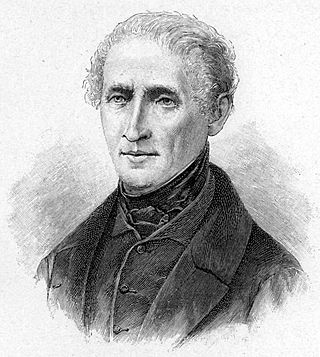
Joseph Freiherr von Eichendorff was a German poet, novelist, playwright, literary critic, translator, and anthologist. Eichendorff was one of the major writers and critics of Romanticism. Ever since their publication and up to the present day, some of his works have been very popular in German-speaking Europe.

Herfried Münkler is a German political scientist. He is a Professor of Political Theory at Humboldt University in Berlin. Münkler is a regular commentator on global affairs in the German-language media and author of numerous books on the history of political ideas, on state-building and on the theory of war, such as "Machiavelli" (1982), "Gewalt und Ordnung" (1992), "The New Wars" and "Empires: The Logic of World Domination from Ancient Rome to the United States". In 2009 Münkler was awarded the Leipzig Book Fair Prize in the category "Non-fiction" for Die Deutschen und ihre Mythen.

Siegfried Balke was a German politician (CSU).
Imanuel Geiss was a German historian.
Hartmut Boockmann was a German historian, specializing in medieval history.
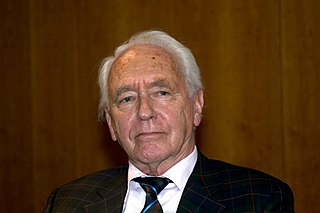
Wolf Dietrich Schneider was a German journalist, author, and language critic. After World War II, he learned journalism on the job with Die Neue Zeitung, a newspaper published by the US military government. He later worked as a correspondent in Washington for the Süddeutsche Zeitung, then as editor-in-chief and from 1969 manager of the publishing house of Stern. He moved to the Springer Press in 1971. From 1979 to 1995, he was the first director of a school for journalists in Hamburg, shaping generations of journalists. He wrote many publications about the German language, becoming an authority. He promoted a concise style, and opposed anglicisms and the German orthography reform.
Hellmut Diwald was a German historian and Professor of Medieval and Modern History at the University of Erlangen-Nuremberg from 1965 to 1985.

Holznot is a historic term for an existing or imminent supply crisis of wood.
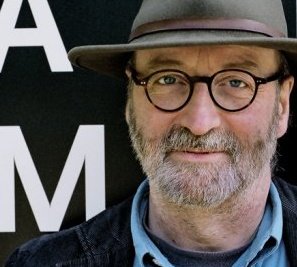
Hans-Michael Bock is a German film historian, filmmaker, translator and writer.

Freimut Duve was a German journalist, writer, politician and human rights activist. From 1980 to 1998 he was a member of the Bundestag for the Social Democratic Party of Germany (SPD). He was the first OSCE Representative on Freedom of the Media from 1998 to 2003. He was lesser known on the German literary scene.
Freies Volk was a newspaper published daily from Düsseldorf, West Germany 1949-1956. Freies Volk was printed at Freier Verlag GmbH, Ackerstrasse 114.
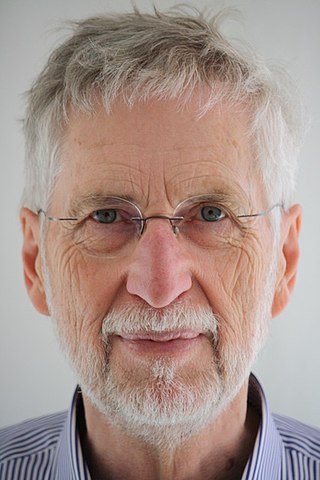
Volker Hage is a retired German journalist, author and literary critic, who has reinvented himself as a novelist.
Ilko-Sascha Kowalczuk is a German historian and author. His work is focused on the German Democratic Republic and its Ministry for State Security.

Gerd Koenen is a German historian and former communist politician.

Fritz Joachim Raddatz was a German feuilletonist, essayist, biographer, journalist and romancier.
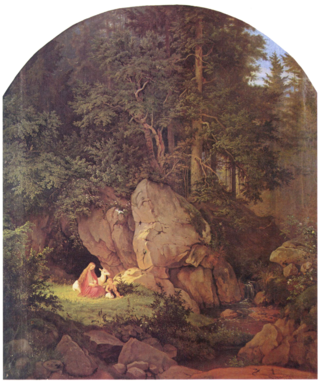
The German Forest was a phrase used both as a metaphor as well as to describe in exaggerated terms an idyllic landscape in German poems, fairy tales and legends of the early 19th-century Romantic period. Historical and cultural discourses declared it as the symbol of Germanic-German art and culture, or as in the case of Heinrich Heine or Madame de Staël, as a counter-image of French urbanity. It was also used with reference to historical or legendary events in German forests, such as Tacitus' description of the Battle of the Teutoburg Forest or even the nature mysticism of the stylized Germanic national myth, the Nibelungenlied as the history of its multi-faceted reception shows.
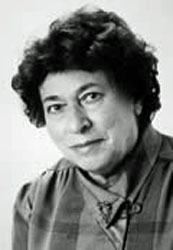
Ingeborg Weber-Kellermann was a German folklorist, anthropologist and ethnologist. She was an academic teacher, from 1946 at the German Academy of Sciences at Berlin in East Berlin and from 1961 at the University of Marburg.
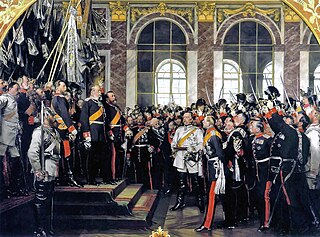
The proclamation of the German Empire, also known as the Deutsche Reichsgründung, took place in January 1871 after the joint victory of the German states in the Franco-Prussian War. As a result of the November Treaties of 1870, the southern German states of Baden, Hesse-Darmstadt, with their territories south of the Main line, Württemberg and Bavaria, joined the Prussian-dominated "North German Confederation" on 1 January 1871. On the same day, the new Constitution of the German Confederation came into force, thereby significantly extending the federal German lands to the newly created German Empire. The Day of the founding of the German Empire, January 18, became a day of celebration, marking when the Prussian King William I was proclaimed German Emperor at the Palace of Versailles, outside Paris, France.
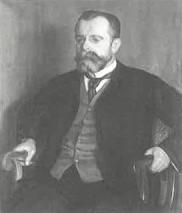
Erich Marcks was a German historian.

Reichsfeinde was a pejorative term used for groups which were in political opposition to the system of the German Reich during the tenure of Otto von Bismarck as chancellor of Germany and during the Nazi regime. Under Bismarck, the term was mainly employed against Catholics and Social Democrats to justify their political suppression. The Nazis added the Jewish people to this list of enemies and violently pursued their destruction for being "non-German".